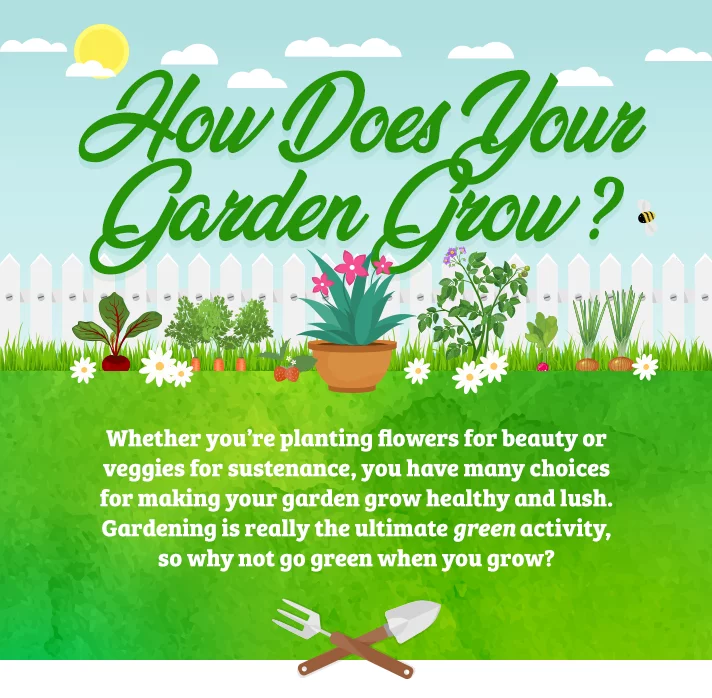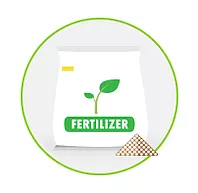
Pesticides and chemical fertilizers may give your garden a boost at first, but in the long run they’re doing a lot of damage to the environment as well as to your little plot of land. Here are some alternative ways to green your gardening.


Fertilizer
Also called “soil conditioners,” natural fertilizers don’t only help your current garden grow, they also promote healthy soil for your future plant growth by making the earth more inclined to hold water and nutrients. Manure is one of the best natural fertilizers you can use.

Compost If you’ve already got a compost pile going, you’re one step ahead! Compost can give your fertilizer a boost by holding the nutrients until the plants are ready to use them. Not a composter yet? The U.S. Environmental Protection Agency has some tips.

Insects
It may sound odd, but there are a variety of little critters that you can purchase to benefit your garden. Ladybugs will eat those awful aphids and many other plant-eating pests. Earthworms will help aerate the soil, allowing nutrients to soak down and roots to expand. Other multi-legged fauna you should encourage in your garden include spiders, praying mantises, bumblebees, lacewings, and braconid wasps. Best of all, most of them can be ordered online and shipped directly to your home!

Rainwater
Setting up a rain barrel will help you save on your water bill while providing untreated water to your flowers and food. Water from your utility has chemicals and additives that your plants can do just as well without, and some of the treatments may even inhibit the soil from holding the nutrients you’ve added and your plants from absorbing them properly.

Lay the foundation.
The organic matter, that is. Mix your compost and manure well and spread it generously on your garden — about a half inch to one inch deep.
Loosen the earth.
Using an aerator, a tiller, or just a trowel, stir up the earth to mix in the organic matter and allow plenty of oxygen to infuse the dirt. This is a good time to “plant” some earthworms as well.
Mulch much.
Adding mulch to your garden is especially critical in dry climates, as it helps retain moisture. Mulch can also reduce the amount of weeds that poke through your carefully cultivated land. Gardens generally need 1 to 4 inches of mulch, depending on the type you’re using and the plants you’re protecting, with most recommendations coming in at 2 to 3 inches. More than 4 inches could suffocate your garden.
Scientifically Speaking …
If you’re so inclined, testing your soil before planting season will let you know exactly which nutrients are lacking so you can make up for them with additives.
When you switch to green gardening, you’re not only cultivating your own bit of earth — you’re also helping to strengthen and enrich the soil for future generations. Who knows what will be growing in your garden in 50 years?


